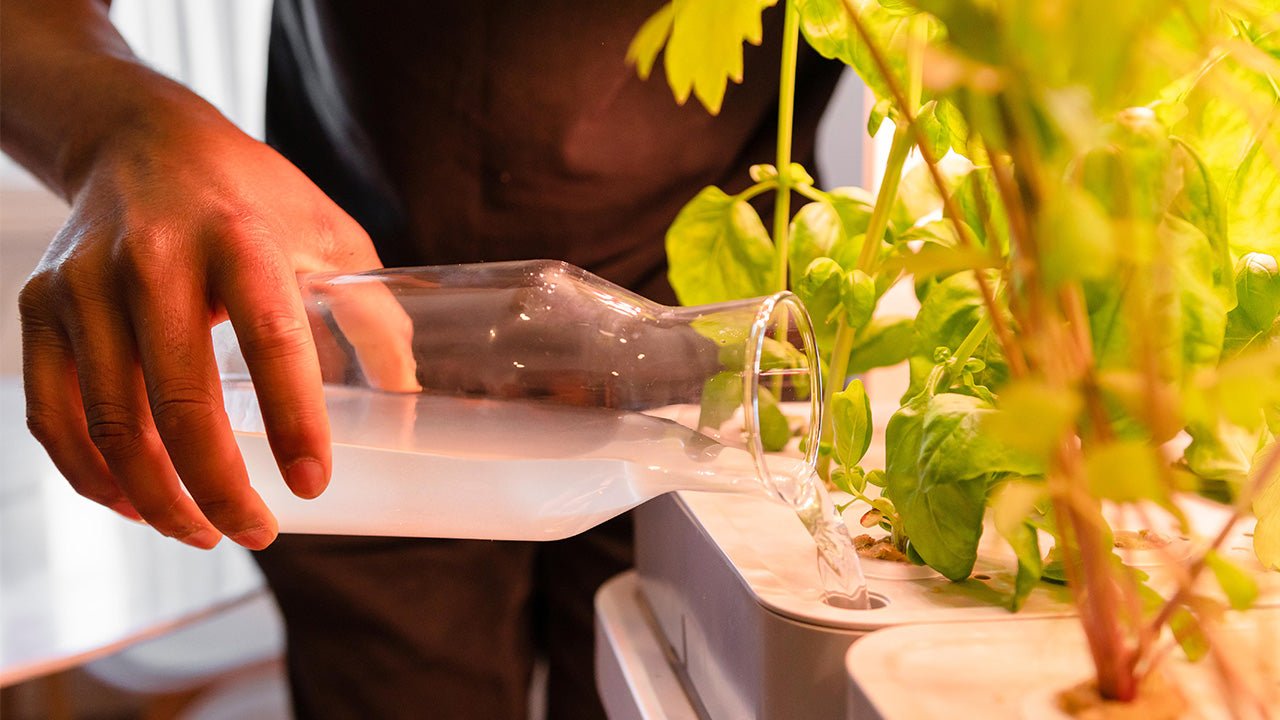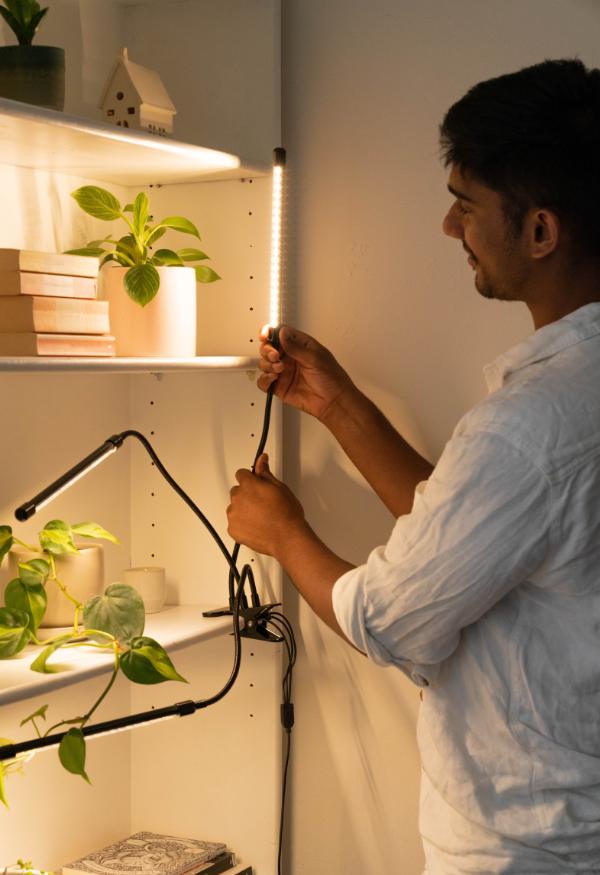Your Cart is Empty
shop
What Nutrients Do Plants Need
June 02, 2022 3 min read

Hydroponic Nutrients
Hydroponics refers to growing plants without soil. Hydroponic nutrients give plants everything they need to grow, so that you can grow plants without soil. In this section we'll cover what nutrients plants need to grow, how much nutrients they need, how you can measure nutrients, and what other factors you should consider when starting a hydroponic garden.
What nutrients do plants need
Without a mix of essential nutrients plants are unable to grow, just like a person needs food so do plants. In total there are 17 essential elements required for plant growth. The nutrients plants use are broken up into three categories; macronutrients, micronutrients and non-mineral elements.
Macronutrients
Macronutrients are the nutrients needed in large quantities; these include Nitrogen (N), Phosphorus (P) and Potassium (K), these are commonly referred to as NPK on traditional soil fertilisers. Nitrogen and Phosphorus are integral to the growth of a plant, they are used in the creation and replication of DNA, the production of sugars and energy. Without this the plant is unable to create new cells, AKA new growth or fruit. Potassium is used by the part of the plant that controls the rate of photosynthesis through regulation of water and carbon dioxide intake. It is also part of the process by which the plant creates starches and sugars, making them hardy. Without this the plant would be highly susceptible to fluctuations in external conditions such as the weather.
Micronutrients
Micronutrients are tiny quantities of a broad range of elements that are just as important for plant growth as macronutrients. There are 11 micronutrient elements; Calcium, magnesium, sulfur, boron, chlorine, iron, manganese, zinc, copper, molybdenum, and nickel. These are used in hydroponic nutrients for the plant to use in a range of processes, essential if you want your plants to be productive!
Non-mineral Elements
There are three non-mineral elements, these are oxygen and hydrogen (which the plant mostly gets through water) and carbon (which the plant gets through air).

How much nutrients do my plants need?
The amount of nutrients in a liquid solution is measured with an electrical conductivity (EC) meter. The meter has two metal probes and works by running an electric current between them. The more dissolved salt in the water, the higher the EC reading will be. As hydroponic nutrients are essentially dissolved minerals, measuring them with an EC meter is a perfect solution.
Each plant will have a different nutrient requirement based on its unique biological properties. We have a database to help you figure out how much nutrients your individual plant needs to grow to its best potential.
Other factors in hydroponics
pH
The pH of a nutrient solution is important as different minerals dissolve in water at different pH levels. As a result, plants that may need a lot of one certain mineral, may prefer a higher or lower pH level accordingly. pH can be measured with a pH meter, and optimised with pH adjusters to make sure you get the most out of your hydroponic nutrients.
Don't stress through - for the average home grower, you can gro wmost plants without worrying too much about pH levels.

Temperature
Plants grown hydroponically require similar environmental conditions to plants grown in soil. For most plants, temperatures between 20 and 30 degrees Celsius are preferred, with humidity levels between 40-60% being ideal.
Oxygen
High oxygen levels promote growth and reduce the chance of plants getting root rot. In most hydroponic systems, getting oxygen to plant roots is done with an aeration pump, circulation pump, or by using a flood and drain system to keep the roots exposed to air.
That's everything on what nutrients plants need. If you wan't to learn more, check out the rest of our series:
- Why Grow With Hydroponics
- You are here -> What Nutrients Do Plants Need
- What Type Of Light Do Plants Need To Grow
- How Much Light Do Plants Need
- LED Grow Lights V.S. Other Hydroponic Lights
- What Is Expanded Clay (Growing Medium)
- What Is Vermiculite (Growing Medium)
- What Is Perlite (Growing Medium)
- What Is Rockwool (Growing Medium)

Take $10 off your first order!
Grow lights, smart gardens, sprout kits and more - we've got all the tools you need to get growing in all the tricky places. Sign up to get your discount code!
